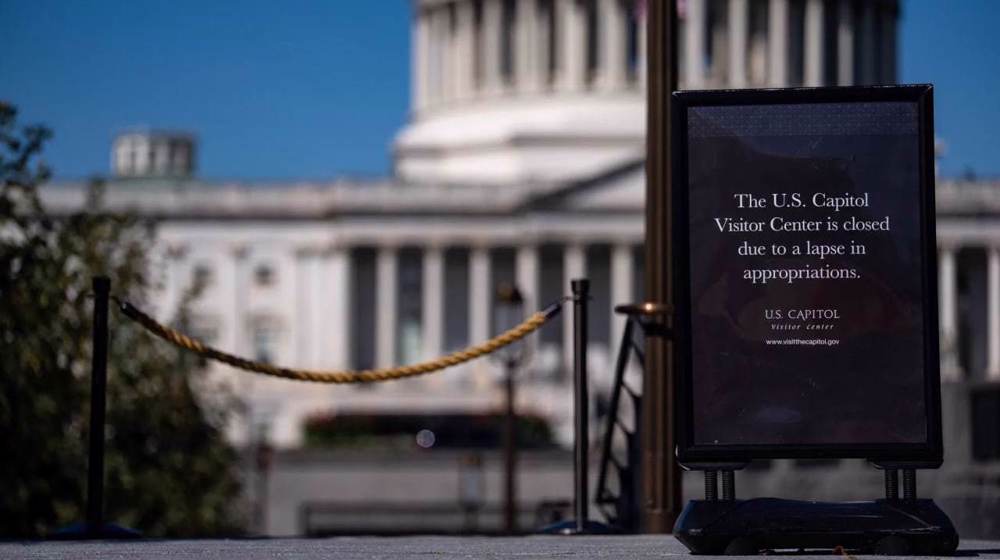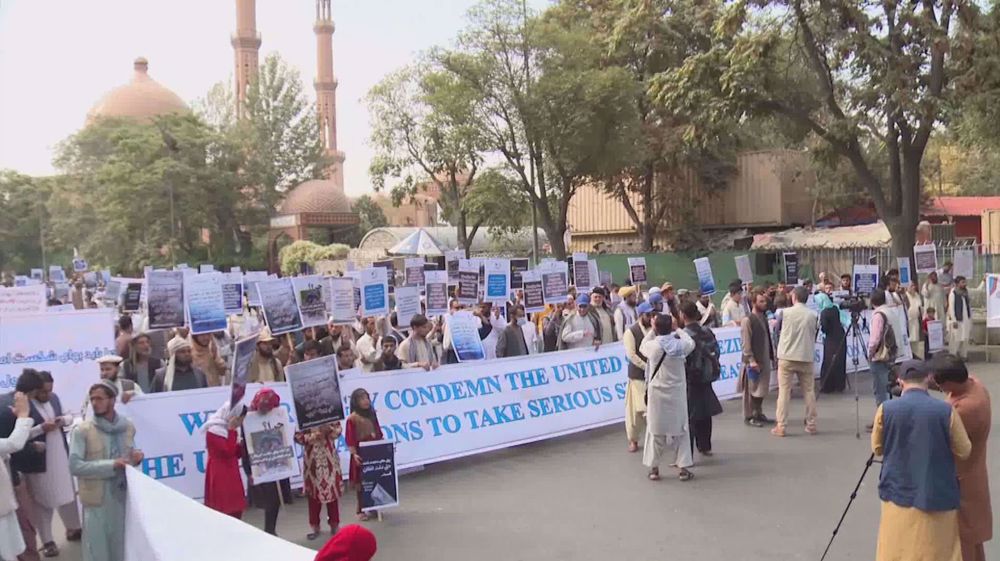Thousands of Afghans apply for humanitarian parole in US, few approved
Out of more than 28,000 Afghans who have applied for temporary entry into the US for humanitarian reasons, only about 100 have been approved so far, according to reports.
Thousands of Afghans who fled their country following the hasty withdrawal of US-led coalition forces in August are currently awaiting review at an agency of the Department of Homeland Security (DHS).
They had been promised entry into the US under a little-known program known as ‘humanitarian parole’, but the backlog of applicants keeps growing, according to US-based legal aid groups.
Humanitarian parole allows non-Americans to enter the US for a duration of no longer than a year, mostly used for people who need urgent medical care or to visit a sick relative.
In order to stay in the US beyond one year, an applicant is required to apply for asylum or a permanent immigration status.
In a letter to Joe Biden administration on October 20, more than 100 legal aid groups, law firms and law school clinics said they anticipate filing at least 30,000 humanitarian parole applications with the US Citizenship and Immigration Services (USCIS) on behalf of Afghans seeking a way out of the country.
The aid groups said they opted for humanitarian parole because other options of entering the US, including visas or refugee processing, could take years.
USCIS spokesperson Victoria Palmer said the agency has been reviewing applications as they come in. In a typical year, USCIS receives fewer than 2,000 applications under the parole program, and has granted roughly 500 a year over the last three years, Palmer was quoted as saying.
Since July 1, USCIS has approved just 93 parole applications for Afghans. Some are still in their home country, while others have made it to third countries and are awaiting further processing, Palmer said.
There has been a growing campaign in the US opposing the entry of Afghans, either on parole or for asylum. Former President Donald Trump last month said there were “absolutely” terrorists and “very bad people” among the evacuees.
“The people they are resettling — it’s the worst,” he told Fox News. “There was no vetting.”
Later, 16 Republican senators signed a letter declaring the screening procedures “insufficient to preserve the safety of the American homeland.” Senator Tom Cotton, echoing Trump’ words, said “there’s really no vetting” of the evacuees.
On Thursday, a report in CNN said the Biden administration is considering sending some of the Afghan evacuees back to their country if they fail to clear the intense and rigorous vetting process.
Spojmie Ahmady Nasiri, a California-based immigration attorney, was quoted by Huffington Post saying that there was “never a plan” and it was “chaotic from the beginning” with “many unknowns”.
“You’re trying to put out the fires as you’re going along and in the process, many people are suffering,” Nasiri said. “These individuals have endured extraordinary difficulties from the minute they tried to get into the airport to get into the lilypads to get into the havens. There’s a lot of trauma. There’s a lot of distrust and a lot of uncertainties.”
Sunil Varghese, the policy director at International Refugee Assistance Project (IRAP) also said that the coordinated plan has been lacking.
“We haven’t really seen a coordinated plan from the administration on how to get Afghan allies and other vulnerable Afghans out of Afghanistan and into the US, especially those who are eligible for humanitarian pathways in the US,” he was quoted as saying by Huffington Post.
US ended its longest war in Afghanistan in August after 20 years of what experts call a futile military adventure that failed to achieve any of its objectives.
The hasty and chaotic withdrawal has spawned a worst humanitarian crisis in the war-torn country, forcing thousands of hapless people to flee.
Iran publishes list of people killed in early January riots
South Africa shows Israeli envoy exit door, holding the line on national sovereignty
Israel’s ceasefire violations part of ‘80-year policy of colonial genocide’ in Palestine: Iran
IRGC Navy chief: Iran's unity and resolve a barrier against enemy plots
IRGC: EU's terrorist labeling aligns with US interventionism
VIDEO | India hosts Arab foreign ministers amid West Asia crises
VIDEO | No decisive win for Trump with Iran
VIDEO | Press TV's news headlines















 This makes it easy to access the Press TV website
This makes it easy to access the Press TV website